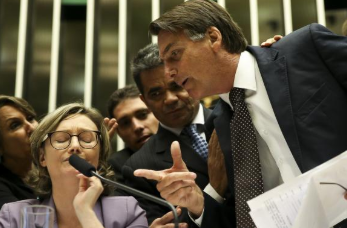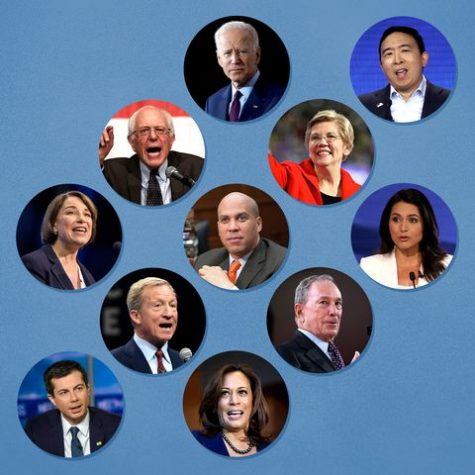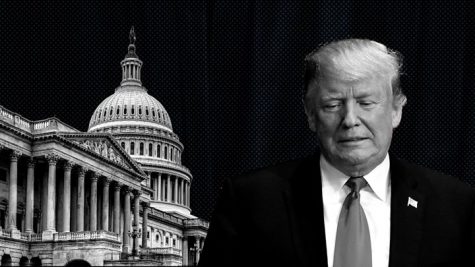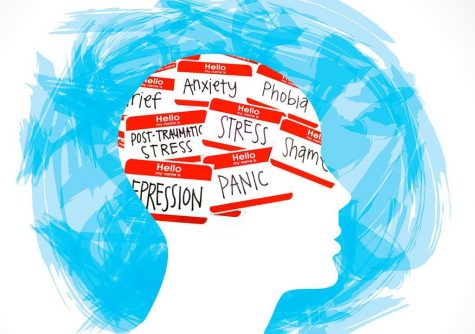Brazil Just Elected A New President. What That Means For The Rest Of Us.

President Bolsonaro
What happened.
Jair Bolsonaro, a politician and retired military officer, won a landslide victory in Brazil’s presidential election on October 28, 2018. Right wing Bolsonaro, won 55.1% of the vote against his opponent, Fernando Haddad (running for the left-wing Workers’ Party) who won 44.9%. Bolsonaro ran his campaign on the people’s fear of continued high crime rates and corruption. Following a string of scandals, he pledged to fight these issues which in turn won him much of his support. However, critics aren’t fooled by his words. While Bolsonaro’s supporters are rejoicing, Brazilians and outside observers are worried by his praise of past dictatorships, his comments on race, women, and the LGBT+ community, and for the future of human rights, and ecological preservation in the world’s fourth-largest democracy.
What Bolsonaro means for Brazilians.
Tension. Uproar. A Movement. Due to the spotlight being shined on Bolsonaro and Brazil as a whole, a social media backlash known as #elenao, or #nothim, has gained support throughout the country and internationally. Even celebrities have commented on the issue via Twitter and news outlets. But Pink Floyd member Roger Waters took the cake for sharing his opinion. During his tour in Brazil, he exhibited the slogan on stage in neon lights and chanted “ele nao” with the crowd. Protests and women marches have also taken the streets with the slogan.
However, for some Brazilians, voting for Bolsonaro was more about keeping the Workers’ Party (PT) out of office. Similar to the U.S. 2016 election, voters care about keeping someone out more than anything else. In today’s political and social climates, elections are about making the other candidates look bad and choosing the lesser of two evils. The world has lost sight of democracy by not finding good candidates that will benefit the world.
What Bolsonaro means for business.
Investors have supported Bolsonaro’s election in hopes that he would execute economic reforms (ex: reforming Brazil’s free-market policies). Bolsonaro’s chief economic advisor, Paulo Guedes, also promises aggressive changes and privatizations. There has been talk about selling off state-owned companies from lender Banco do Brasil to oil companies which would allow the country to pay off its debts and better fund the government. Also, the Brazilian stock exchange traded funds jumped more than 12% following Bolsonaro’s win. Brazil’s currency has gained about 10% against the dollar when Bolsonaro’s prospects of winning increased. And Sao Paulo’s (Brazil’s financial district) benchmark stock index has risen 13.5% since September.
What Bolsonaro means for human rights…specifically the rights of LGBT+
To understand why Bolsonaro evokes such dread, here are some things he has said in the last few years:
- “I’d rather have my son die in a car accident than have him show up dating some guy.”
- “I’m not going to rape you, because you’re very ugly”
– to a female representative in Congress.
- “They don’t do anything. I don’t think they’re even good for procreation any more”
– referring to quilombolas, the black descendants of rebel African slaves.
- “You won’t change anything in this country through voting; nothing, absolutely nothing. Unfortunately, you’ll only change things by having a civil war and doing the work the military regime didn’t do. Killing 30,000, starting with FHC [former president Fernando Henrique Cardoso]. Killing. If a few innocent people die, that’s alright.”
His comments and opinions regarding women, the LGBT+ community, Africans, and ways to achieve peace are alarming, to say the least. Many people talking about the election compare Bolsonaro to U.S. President Donald Trump and Philippines President Rodrigo Duterte because of their shared love of stirring controversy with misogynistic, racist and homophobic remarks. There will be “a lot of consequences for LGBT people,” says law professor Roberto Efrem, especially if Bolsonaro’s proposal to add 10 judges to the current 11 on the Supreme Court becomes reality. LGBT+ supporters fear that all of the progress Brazil has made over the past two decades, (legalizing gay marriage, the creation of LGBT+ crisis centers, public health care for trans people and the inclusion of LGBT+ people in the military and in public sector jobs) will be reversed by Bolsonaro. Throughout Bolsonaro’s campaign, he preached about lowering crime rates and vowed to be tough on crime when elected. However, LGBT+ advocates are not convinced he will be their protector. In the few weeks between the first round of presidential elections on Oct. 7 and his electoral victory, “Bolsonaro has been at the hub of several controversies and, according to Brazilian news reports, served as inspiration for violence against LGBT+ people, social justice activists and journalists” says a report from NBC News. Two specific cases are that of a transgender woman who was stabbed to death in Sergipe a week before the election, and a drag queen who was murdered in the center of São Paulo on October 16. During both attacks, the perpetrators said it was in Bolsonaro´s name, according to local news reports. During his campaign, he gave a voice to the far-right population who want to voice their prejudice and hate to destroy anyone who is different. This negative discourse that he is spreading has led to death and destruction. Brazil and the world must brace themselves for the reign of terror that is Jair Bolsonaro. Prepare to see Brazil on the news, to see unjust laws passed, and ambitious international decisions.
Sources:










